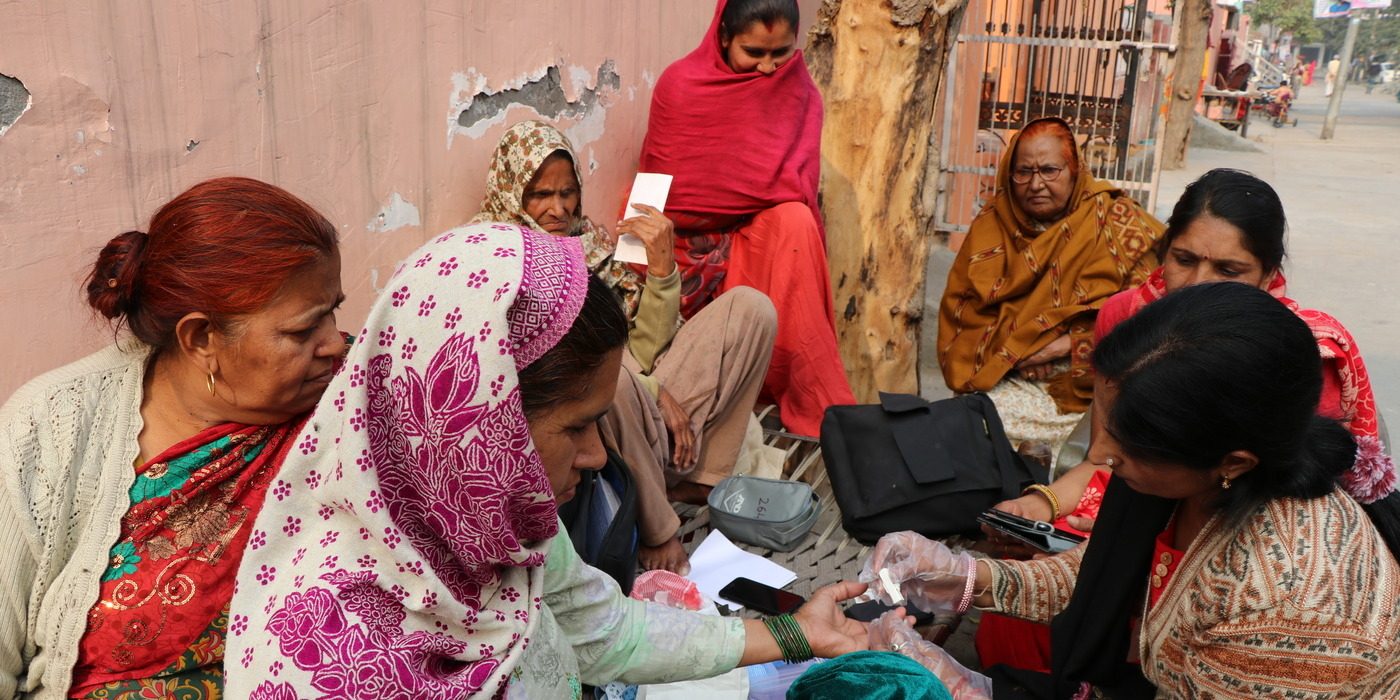
New Founders’ Fund will invest in health equity and maternal care
Professors Robyn Norton AO and Stephen MacMahon AO, Founding Directors of The George Institute for Global Health, have gifted the medical research institute A$1M in seed capital for projects addressing inequities in sex and gender health, and improving maternal and newborn care.
Their donation will be matched by The George Institute and kickstarts a new Founders’ Fund enabling some of the organisation’s most talented people and partners to develop innovative solutions to the world’s most pressing health problems.
“We know from experience how powerful an initial investment can be when talented, committed researchers receive start-up support for work they believe could change global health,” said Professor MacMahon. “This donation recognises our belief in the potential of the organisation we established 25 years ago to greatly expand its impact on global health in the decades to come.”
“In the next financial year, the Founders’ Fund will invest A$2M in the growth of the Institute’s Women’s Health Program,” said Professor Norton.
“For too long, women’s health has been under-researched and under-funded, and the Institute’s Women’s Health Program was established specifically to help address these deficits. The two projects the Fund will support each have the potential to make a real impact in a short time.”
Allocations from the Founders’ Fund in the 2024/25 financial year are:
- A$1M to support the establishment of the Centre for Sex and Gender Equity in Health and Medicine and its vision to ensure that women and girls, as well as sex and gender-diverse people, including men and boys, are appropriately included in research, and that sex and gender are routinely considered in health and medical research, policy, and practice; and
- A$1M to support the Pregnancy and Postnatal Care Program to continue the development of innovative technologies and workforce strategies to improve outcomes for mothers and babies in regions with little or no access to high-quality medical care.
“These are exciting developments we feel privileged to support, and they are just the start,” Professor Norton added. “We will work with the Institute’s Board, senior management and other supporters to grow the fund and increase the number of programs it can support.”
Professor Anushka Patel, Chief Executive Officer of The George Institute for Global Health, commented, “We thank Robyn and Stephen for their generous donation and are grateful for their ongoing support and active contribution to our mission.
“Philanthropic investment is an increasingly important enabler of global health equity, and we take this opportunity to extend our thanks to the many individual donors and organisations for their generosity in supporting our work at The George Institute. Their contributions increase our ability to directly address problems on the ground and provide evidence to guide changes in health policy and practice around the world.”
About the Centre for Sex and Gender Equity in Health and Medicine
A natural evolution of The George Institute’s extensive research into the extent and impact of sex and gender bias conducted over more than 20 years, the Centre for Sex and Gender Equity in Health and Medicine was launched in March 2024 in partnership with the Australian Human Rights Institute, UNSW Sydney and Deakin University. The launch event was supported by a Health and Medical Research Sponsorship grant from NSW Health. The Centre will shortly announce the appointment of a director and a manager, along with a national plan of action to ensure appropriate integration of sex and gender in future medical research and across all health services, policy, and education.
About the Pregnancy and Postnatal Care Program
This program builds on the Institute’s work on technology-facilitated healthcare for people with chronic conditions. The Pregnancy and Postnatal Care Program is designed to improve community-based screening and management of anaemia, diabetes and hypertension during pregnancy and the postnatal period using a decision support tool provided on mobile tablets to community health workers (ASHASs) in rural India, where it has been in use since 2019.
The team is now integrating a proprietary large language model (LLM) chatbot into the platform to equip Indian community health workers (ASHAs) to access real-time local guideline-based information to respond to patient questions in the field. The initial development of the LLM was supported by a Grand Challenges grant from the Bill and Melinda Gates Foundation in 2023. The Founders’ Fund will support the project’s expansion, with the goal of reaching one million ASHAs and many more mothers and babies.




